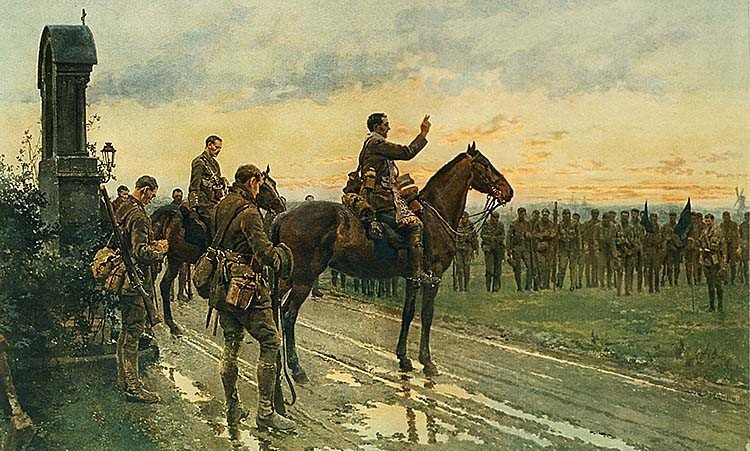Men who Procreate, Protect and Provide for the Mystical Body of Christ
The Ignatian’s love for the Church is a spousal and virile love in which he fulfills a man’s triple role: to procreate, to protect and to provide. Like any man the priest must be good at fulfilling the distinctively male role of provider, procreator and protector. This implies the exercise of virtues, that although also present in the female sex, must be especially present to the degree that they are dominant in the male: to be proactive, fight enemies, confront danger, stand up and face opposition.
The priest fulfills this role through forging the conviction of his intelligence, the strength of his willpower, and the readiness to endure through blood, sweat and tears. Not merely passively but proactively, slashing his way through the jungle of obstacles, creating initiatives, building the Church, extending the reign of Christ, and so helping to populate Heaven. For this is the ultimate goal, the only serious business in life.
Self-sacrifice is therefore intrinsic to the priest’s fatherhood. As Saint Paul stated: “My little children, with whom I am again in travail until Christ be formed in you!” (Gal. 4:19) The logo of the Society of Ignatians, the pelican, embodies this truth.
But procreation involves much more than simply bringing another into existence. St. Thomas Aquinas, quoting Aristotle, remarked that “a son receives from his father, existence, food, and education”. Therefore the priest’s supernatural fatherhood does not end with bringing his supernatural offspring to birth in baptism. He, like the biological father, must prolong his procreative action in multiple ways. What the biological father does in the context of marriage and family, the supernatural father does in the context of the sacraments and in the exercise of his triple role of sanctifying, shepherding and teaching as he strives to lead his sons and daughters through the dangers of “Middle Earth” to their Homeland.
By acting out the power of the sacramental character and the gifts of grace from ordination he sustains, develops and educates the new supernatural life brought to earth by Christ and in this way he allows the powers of fatherhood within him to unfold and mature. In this way he grows in the virtues of fatherhood and experiences himself as father.
Likewise all the qualities of spiritual fatherhood present in either biological fathers or in those men who have dedicated themselves to a mission in life so exceptional that they are known as fathers of nations, societies, or fields of knowledge, should be recognizable in the priest. Such men were earnest, self-sacrificing, and loyal to truth; they loved silence as an important condition for a deep interior life, they did not hesitate to spend considerable time in reflection to ponder their ideals and decisions; they respected knowledge by reading selectively and widely; valiantly some of them prepared to risk all for their ideal; responsibility was their hallmark.

